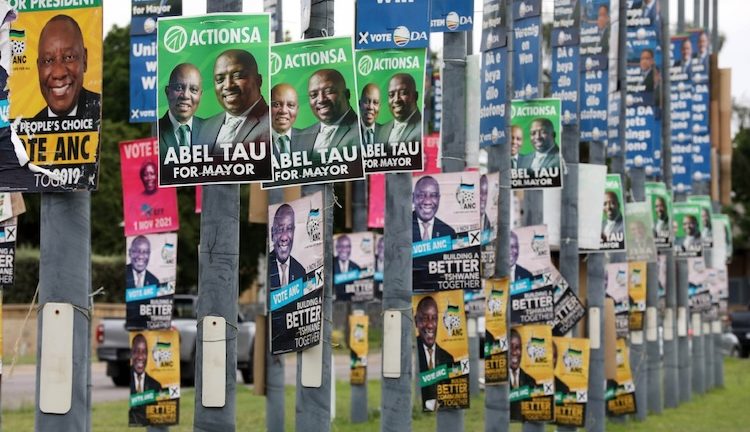By Lisa Vives, Global Information Network
NEW YORK | 27 May 2024 (IDN) — As South Africa’s democracy turns 30, Nelson Mandela’s ANC party faces its toughest election yet.
While the streets may be plastered with campaign posters of smiling politicians promising “A Job In Every Home” or to “Rescue South Africa”, many things have not improved.
To many young South Africans, the ANC party is linked to today’s problems. Two decades of economic stagnation mean half of its young people are unemployed, the vast majority of them Black.
The African National Congress has lately become more identified with corruption, violent crime and incompetent management than the liberation struggle.
“Everywhere in the country, crime is the thing that people talk about, whether you’re Black or white,” said William Gumede, executive chairperson of the Democracy Works Foundation and associate professor at the University of Witwatersrand.
Yet South Africa is still a vibrant democracy with a free and fearless press and an independent judiciary. Human rights, including LGBTQ rights, are—unlike in many countries on the continent—enshrined in the constitution.
“We want to see job opportunities coming and basically general change in every aspect,” ANC supporter Ntombizonke Biyela said. “Since 1994 we have been waiting for ANC, it has been long. We have been voting and voting but we see very little progress as the people, only a special few seem to benefit.”
A better place than it was during apartheid
While conceding to some failures, the ANC maintains that South Africa is a better place than it was during apartheid, when a set of race-based laws oppressed the country’s Black majority in favor of a small white minority.
The ANC is also widely given credit for expanding social support and housing and other services for millions of poor South Africans in the decade after apartheid, even if critics say it has lost its way recently.
“There are many problems in South Africa, but nobody can deny the changes that have happened since 1994, and that was because of the ANC,” said 42-year-old Eric Phoolo, another supporter of the ruling party. “These other parties don’t have a track record of bringing change to the country.”
At the final rally of the ANC, the FNB stadium in Johannesburg was awash with the party’s yellow and green colors. With a capacity of 94,736, it’s the biggest stadium in Africa and the fourth-largest soccer stadium in the entire world. At the final rally, an impressive 60,000 to 70,000 ANC followers showed up.
But with its popularity steadily declining over the last two decades, the vote on 29 May could be a landmark moment if the party once led by Nelson Mandela drops below 50% of the vote for the first time.
The Economic Freedom Fighters
South Africans vote for parties and not directly for their president in national elections. Parties then get seats in Parliament according to their share of the vote and the lawmakers elect the president—which is why the ANC losing its majority would be so critical to the 71-year-old Ramaphosa’s hope of being reelected for a second and final five-year term.
Older voters and those in rural areas may continue to support the ANC with a “better the devil you know…” attitude to politics. But the urban, educated middle class and the young “born frees” are less likely to share this view.
Among the most popular parties of the opposition that have drawn votes from the ANC are: The Economic Freedom Fighters, a Pan-Africanist party headed by fiery leader Julius Malema that promises to tackle corruption, provide quality social housing and provide free primary healthcare and education for all, as well as proposing to expropriate white-owned farmland, double welfare grants and the minimum wage.
The new uMkhonto WeSizwe Party is the party of former South African President and ANC leader Jacob Zuma. He promises to build factories, create jobs and offer free education. The Democratic Alliance, the biggest opposition party, broadly centrist, headed by John Steenhuisen. They oppose Black race quotas in employment and pledge to “rescue South Africa.” [IDN-InDepthNews]
Photo credit: Antonio Muchave. Source: Times LIVE


